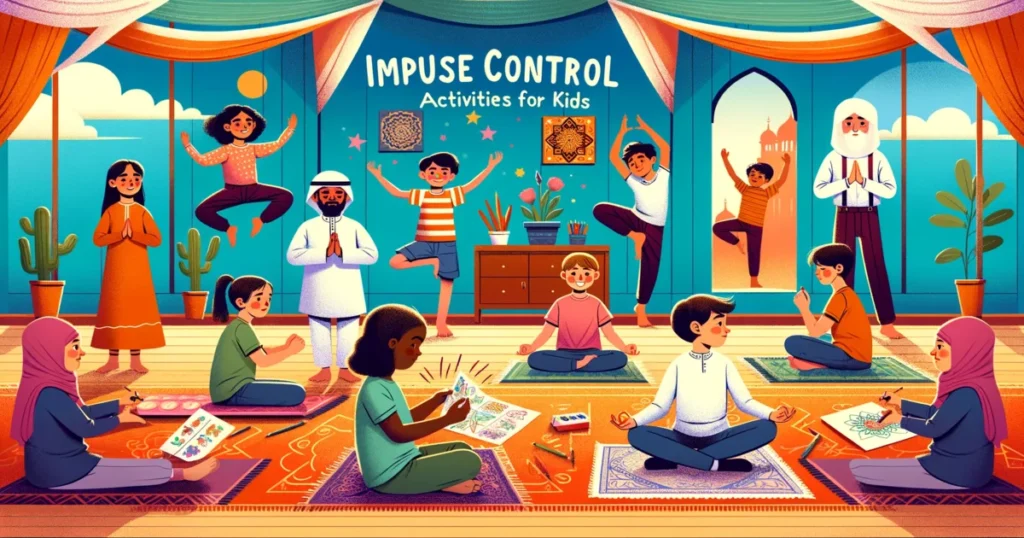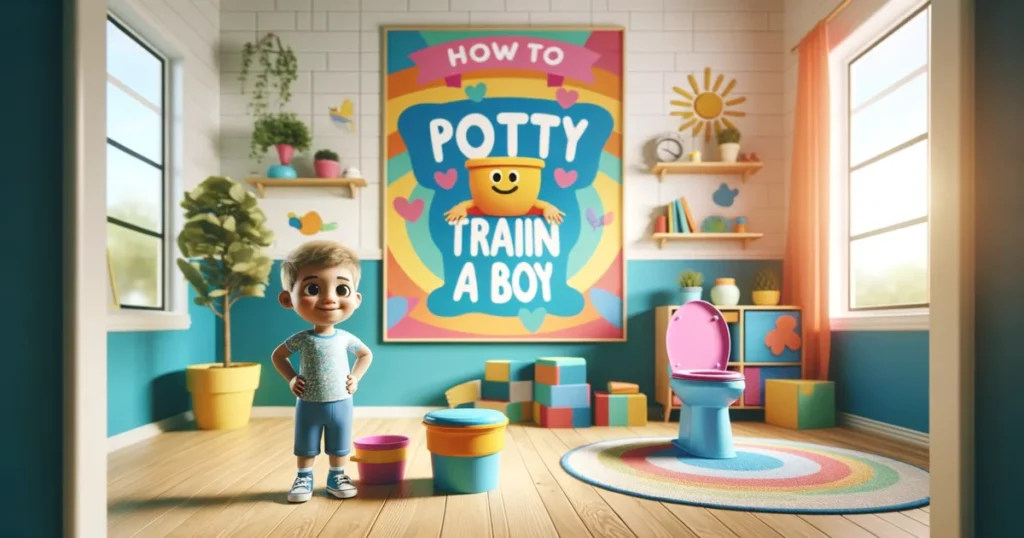Introduction about Educational Toys:
Unlock the potential of playtime with our guide on educational toys and their pivotal role in your child’s development. This article sheds light on the expert-backed strategies that leverage the power of play for learning, ensuring that every giggle and puzzle piece fits contributes to your child’s cognitive, social, and emotional growth. Dive in to transform playtime into a rich learning experience that benefits your child in delightful ways.
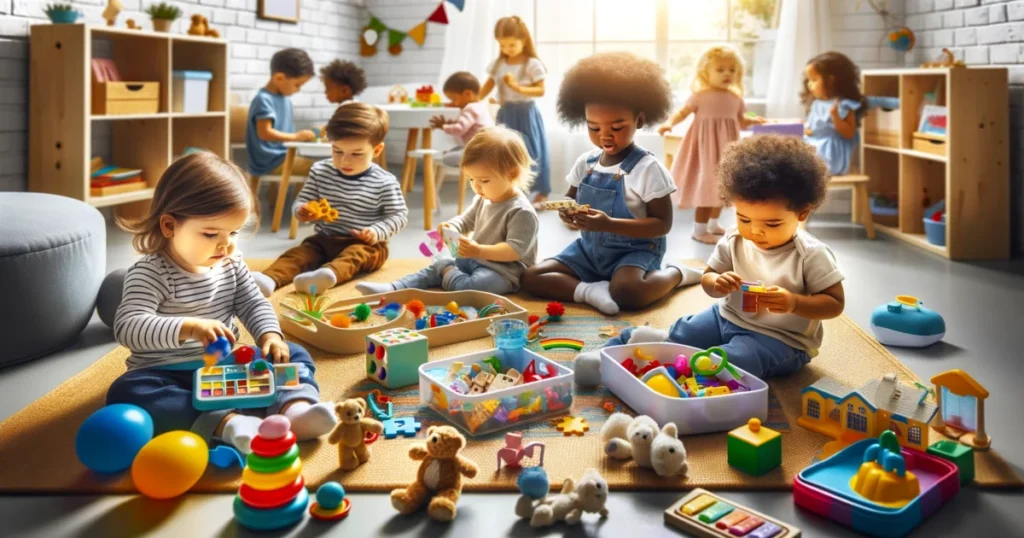
Sensory Development with Educational Toys:
Think of the time when your toddler first felt the texture of a fluffy teddy bear or the cool, smooth surface of a metal car. These sensations are like little sparks flying in their brain, lighting up the pathways to learning. Sensory toys aren’t just a source of endless fascination; they’re crucial tools that help your child discover and make sense of their world.
Tip: Turn playtime into sensory exploration. Fill a box with objects of different textures and shapes and let your child dig in.
Motor Skills Enhancement:
Watch your child’s concentration as they try to fit a square block into a square hole. This simple act is a workout for their brain and tiny muscles, honing their coordination and control. It’s the basic training for everything from writing their name to catching a ball.
Tip: Create a mini-obstacle course with cushions and toys to crawl over and under, turning motor skill development into an adventure.
Problem-Solving Abilities with Educational Toys:
When your child figures out a puzzle, it’s not just a game—it’s a small step towards becoming a thinker, a doer, a problem solver. They’re not only learning the concept of ‘fitting in’ but also patience and the sweet reward of persistence.
Tip: Use puzzles as a fun teaching tool. Discuss the shapes and themes of the puzzles to extend learning beyond just fitting pieces together.
Language and Communication Skills:
As your child gives a voice to a toy character, they’re actually finding their own voice. Interactive storytelling isn’t just about having fun; it’s a way to practice language, learn new words, and start understanding the power of communication.
Tip: Engage in ‘story dice’ games where each roll prompts your child to add to a story, boosting their narrative skills.
Emotional and Social Intelligence:
Picture your child caring for a doll or cooperating with others in a make-believe world. These playtimes are rehearsals for life, teaching them to navigate the world of emotions and human connections.
Tip: Host a teddy bear picnic and encourage your child to interact with their ‘guests’, fostering social skills and empathy.
Cognitive Flexibility with Educational Toys:
Imagine your child building a spaceship, then tearing it down to craft a race car from the same set of blocks. This fluid thinking is what helps them adapt to new situations and think creatively. Educational Toys that encourage such flexibility are teaching them that there is more than one solution to a problem.
Tip: Give your child toys that can be used in multiple ways, and let their imagination run the show.
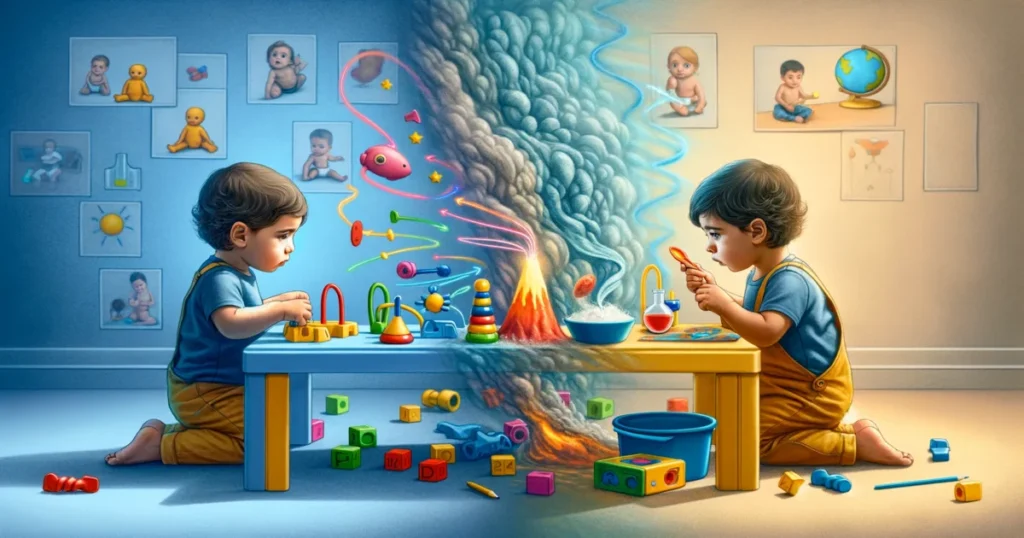
Conceptual Understanding:
When children use educational toys that mimic real-life roles, they’re doing more than playing; they’re understanding the world. A play kitchen or a science kit isn’t just a toy; it’s a bridge between complex concepts and their curious minds.
Tip: Engage in role-playing games where your child can ‘run’ a shop or ‘fix’ things, teaching them about the world in a hands-on way.
Memory Retention:
Remember the pride in your child’s eyes when they recall where the matching cards are in a memory game? That’s the look of a brain getting stronger, better, faster at remembering things, a skill that will serve them in every aspect of life.
Tip: Create memory challenges with educational toys, turning a tidy-up time into a fun memory test.
Attention and Concentration:
It’s magical to watch your child immersed in building a complex LEGO set or completing a detailed coloring page. This isn’t just play; it’s the development of focus, the kind that will one day help them through a tough math test or a complicated task.
Tip: Start long-term projects that your child can return to regularly, cultivating patience and focus.
Confidence and Self-Esteem:
Every time your child successfully completes a challenging game, it’s like a pat on their back from themselves, telling them, “I can do this!” This self-encouragement is the foundation of a strong, confident individual who believes in their own abilities.
Tip: Set up a ‘challenge of the week’ that your child can work on, building up to a reward that celebrates their effort and success.
Table: Educational Toys Recommendations by Age Group
| Age Group | Recommended Educational Toys | Developmental Milestones |
|---|---|---|
| 0-12 months | Sensory balls, Soft books, Baby gyms | Sensory and motor development, Cause and effect |
| 1-2 years | Shape sorters, Musical toys, Basic puzzles | Walking and talking, Fine and gross motor skills |
| 3-4 years | Counting toys, Simple board games, Pretend play sets | Counting and recognizing letters, Beginning problem-solving |
| 5-7 years | Educational video games, Science kits, Complex puzzles | Reading and writing, Basic scientific understanding |
| 8-10 years | Robotics kits, Advanced craft sets, Strategy board games | Strategic thinking, Fine motor skills refinement |
| 11-13 years | Mathematics skill builders, Language learning software, DIY project kits | Abstract thinking, Advanced problem-solving |
| 14+ years | Coding toys, Financial literacy board games, Problem-solving challenges | Complex logical reasoning, Preparing for higher education and adulthood |
Facts and Figures:
- Educational toys can increase IQ levels by up to 11 points in early childhood.
- Children who engage with educational toys are found to have enhanced concentration and attention skills.
- Play with educational toys in early years is linked to better performance in STEM subjects later in life.
FAQs:
Q: At what age should I start introducing educational toys to my child?
A: It’s never too early to start! Even infants can benefit from sensory toys that stimulate sight, sound, and touch. As they grow, you can introduce more complex toys that match their developmental milestones. For example, soft books and rattles are great for babies, while toddlers may enjoy shape sorters and simple puzzles. It’s all about matching the toy to your child’s stage of growth and curiosity.
Q: How do educational toys differ from regular toys?
A: Educational toys are specifically designed with a child’s development in mind. They are meant to stimulate learning, whether it’s through solving problems, developing motor skills, understanding cause and effect, or learning about the environment. Regular toys may not have these specific goals, but they can also be educational if they are used in a way that promotes learning.
Q: Can educational toys really make my child smarter?
A: While ‘smarter’ is a broad term, educational toys can certainly develop specific skills such as critical thinking, problem-solving, and language abilities. These toys can create a foundation for learning that sets your child up for success in more formal educational settings later on.
Q: How can I tell if a toy is age-appropriate for my child?
A: Check the manufacturer’s recommended age range, which is usually a good starting point. But you also know your child best—observe their current interests and abilities. A toy that is too advanced may lead to frustration, while one that’s too simple might not engage them. It’s about finding that sweet spot where the toy challenges them just enough to keep them engaged and learning.
Q: How many educational toys does my child need?
A: Quality over quantity is a good rule of thumb. Having a few well-chosen educational toys that grow with your child can be more beneficial than having a large number of toys that they quickly outgrow. Also, rotating toys can keep things fresh and interesting for your child.
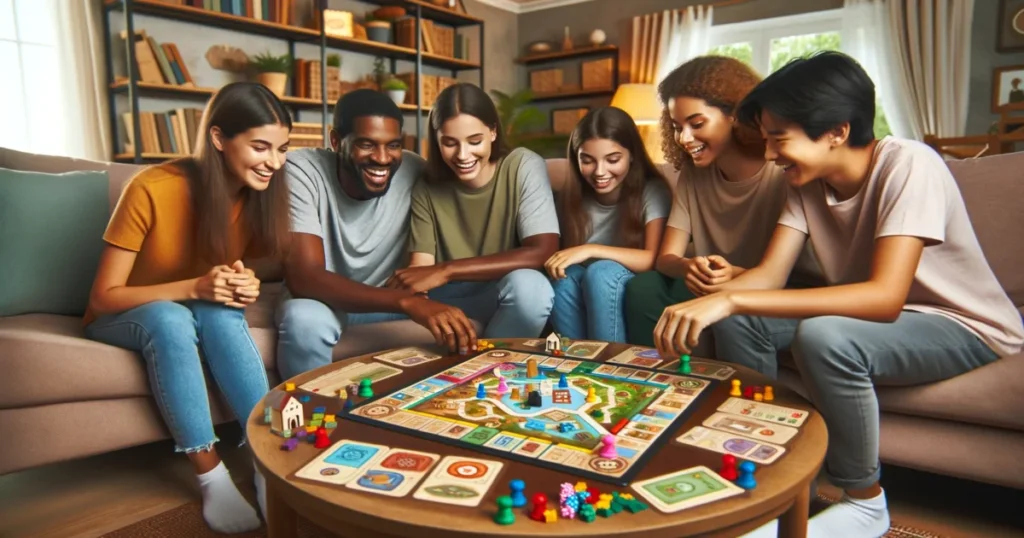
Conclusion:
In the landscape of play, educational toys are the building blocks of a robust learning ecosystem. By integrating these tools into your child’s routine, you pave the way for a bright and knowledgeable future.
- Educational toys are more than playthings; they’re tools for developing young minds.
- Lead by example by engaging with your child during educational play.
- Embrace the joy of learning through play and watch your child’s knowledge and skills flourish.
Want to learn about happy parenting? Click here to read our easy tips on our blog!
